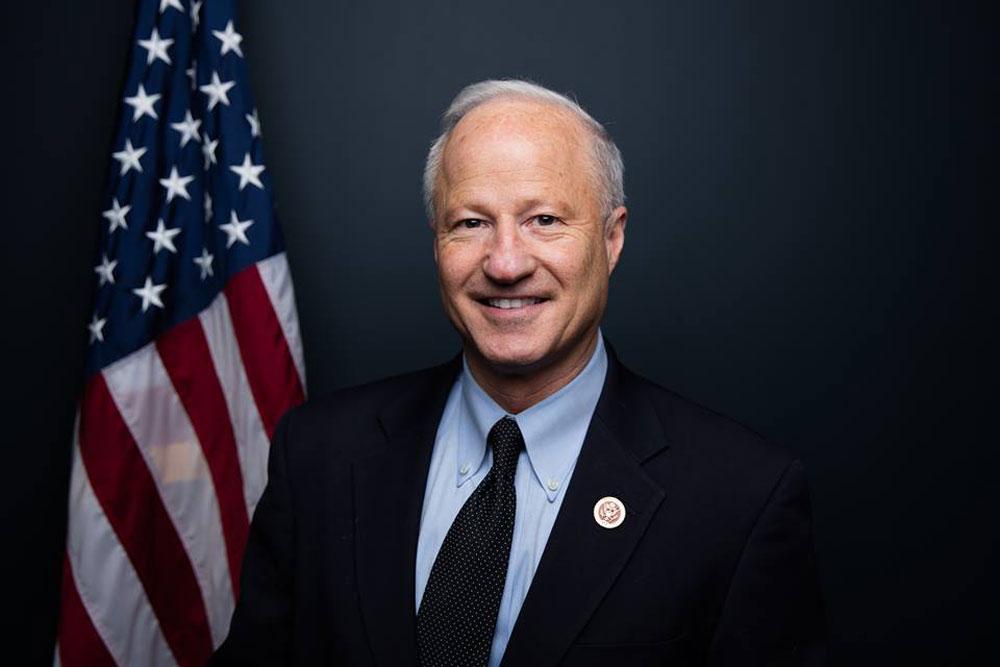

Rep. Mike Coffman has renewed his efforts to find a permanent solution for young undocumented immigrants brought to the U.S. as children. The Aurora Republican co-signed a letter to House Speaker Paul Ryan Tuesday that seeks action by year’s end.
Proud to join my colleagues in a letter to @SpeakerRyan asking for a permanent legislative solution for #DACA recipients before year end. All part of fixing our broken #Immigration system. pic.twitter.com/7TGCIb0Tbr
The push comes three months before President Trump plans to end the Deferred Action for Childhood Arrivals program. President Obama established DACA by executive order over five years ago. Trump has given Congress until March 5 to cement it into law.
If congressional leadership fails to act, Coffman said he could revive an effort to force a vote on the so-called BRIDGE Act. The measure would extend the protections established by DACA for three years.
“If all else fails, my hope is efforts will go back to that rather than let the system fold and let these young people be subject to deportation,” Coffman said.
Coffman would force a vote through a “discharge petition.” If more than half of representatives sign on, the measure would come up for a vote without going through committee. It amounts to an end run around legislative leadership.
Coffman first submitted a such a petition last September. While it’s still active, he is not lobbying other representatives to join him in hopes that Congress can find a solution more permanent than the BRIDGE Act.
He said he would change tactics if Republican leaders run up against President Trump’s March deadline.
Read The Transcript
Rep. Mike Coffman: The one question is, can we do better than DACA and have some sort of permanent solution, a Dream Act if you will, which would be a path to legal permanent residency based on military service, based on work history, based on education. DACA is a good default position. The Bridge Act, that would give us a three-year extension on DACA and so certainly, if all else fails, my hope is that efforts will go back to that, rather than let the system completely fold and these young people be subject to deportation. But I'm optimistic that we can get more than DACA, that we can get some sort of a Dream Act and so that's what I'm still working for. At what point will you really step in if congressional leadership doesn't do what you would like them to do? MC: If that does occur and we get towards that March deadline, then certainly, I would encourage my colleagues from both sides of the aisle to sign on to the discharge petition that is the Bridge Act, that would extend DACA for three years and protect these young people. And if that took place, would you have to reintroduce this discharge petition or is it still out there just waiting for members of Congress to sign onto it? MC: No, it is still out there. And so we just have to campaign for it, if you will to encourage people to sign it. So that is really a last resort. We're far from there yet and I'm still optimistic, although I'm not optimistic that there's gonna be a resolution by the end of the year, but certainly optimistic that there'll be a resolution by March. There is a deadline kind of approaching a little more quickly and that has some Democrats pushing, I understand, to include a DACA extension in any bill to keep funding the government. What do you think about that approach? MC: I'm not for a shutdown for the government as much as passionate I am about these young people. I do believe that we can arrive at a situation or solution. It probably will involve some elements of border security in exchange for hopefully some kind of Dream Act, some kind of permanent solution for these young people. You represent Aurora, Colorado, which is a place where I imagine there are an awful lot of DACA participants right there in your district along with their families. Have you heard from some of them about their fears of maybe deportation, having their families divided? MC: Oh, that's been a constant source of anxiety among these families. One story I think that is so impressive, about a young person that came to my office that I often reflect on is Monica, which is her first name and she's given me her permission to use her name. Her parents took her here when she was one year old. I mean, she knows of no other country, she grew up here, she went to school here, graduated from high school here, but prior to her graduation, she applied to go to the United States Naval Academy. And because of her citizenship status was ineligible to go but she had all the right grades, she had the activities and she had everything going for her and wanted to serve the only country she's ever known. And so I think it's a tragedy for so many of these young people and so it's just important for us to bring this issue to closure. |









